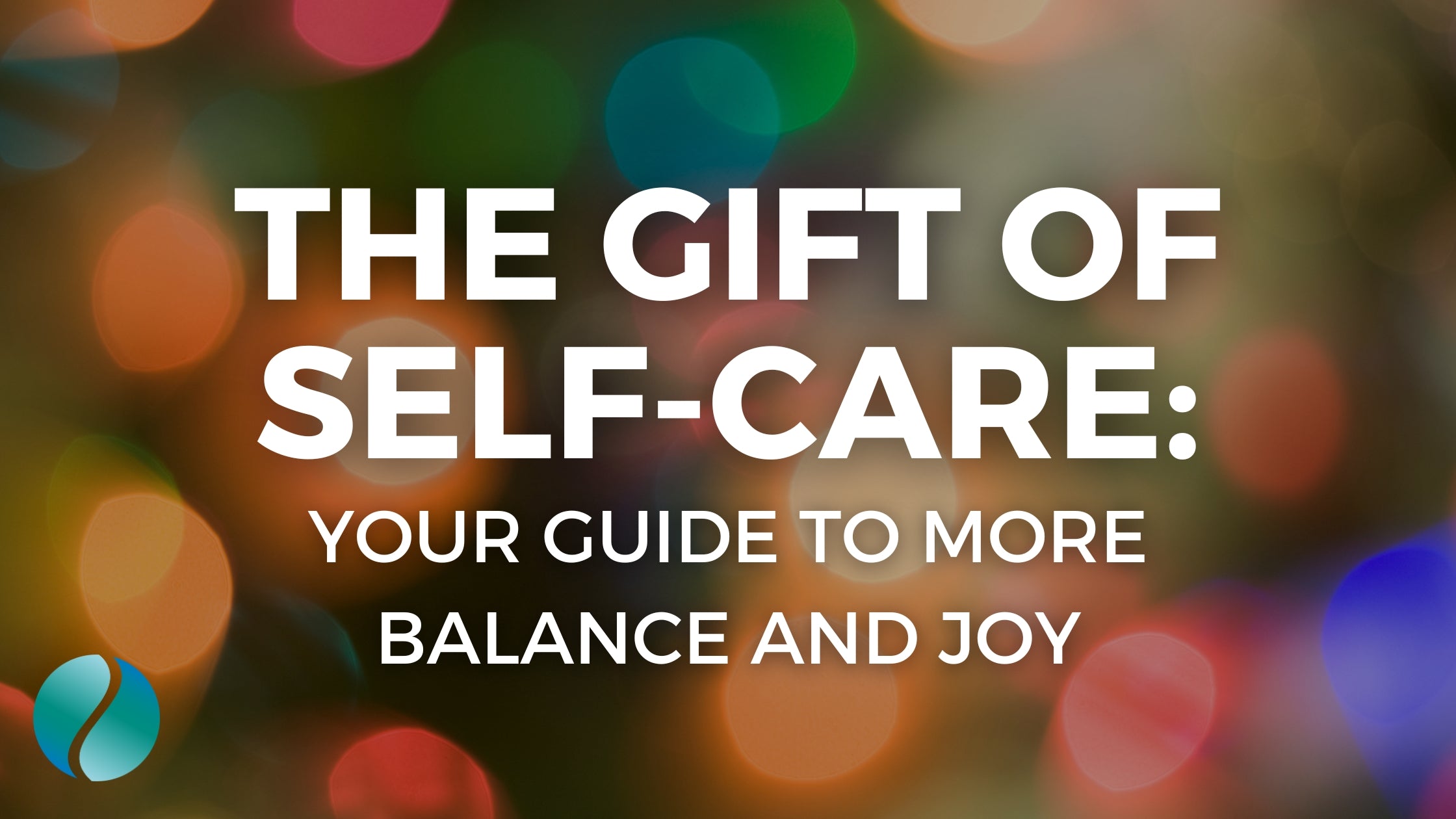The holiday season is a time for celebration, connection, and giving—but it can also bring stress, exhaustion, and a whirlwind of obligations. Between managing your to-do list, attending get-togethers, and meeting everyone’s expectations, it’s too easy to forget about the most important person on your list: you.
That’s why self-care during the holidays isn’t just a nice-to-have—it’s a must. This article will explore simple yet impactful strategies for staying grounded and thriving throughout the festive season. From setting healthy boundaries and caring for your well-being to carving out moments of rest and reflection, these tips will help you find balance, joy, and even a little peace amid the hustle and bustle.
Start Your Journey to Stress-Free Holidays and Year-round Wellness
The Foundations Program by Thera Optimal Health is a powerful year-round resource for building sustainable self-care habits, which can be especially valuable during the holiday season. Learn more here.
Why Self-Care Matters During the Holidays
The holiday season often shakes up our routines—late nights, indulgent meals, and jam-packed schedules can leave us feeling drained and overwhelmed. When stress accumulates, it can take a toll on our sleep, energy levels, and even our relationships. This is where self-care becomes essential. Prioritizing your well-being isn’t just about managing stress—it’s about maintaining balance and thriving during a busy time.[1]
Here’s how self-care can help:
- Reduce stress and anxiety
- Improve energy and focus[2]
- Enhance emotional resilience[3]
- Strengthen your immune system[4]
Think of self-care as recharging your batteries so you can show up as your best self for the people and moments that matter most.
1. Set Realistic Expectations

The pressure to create the “perfect” holiday can lead to overwhelm. Instead, focus on what truly matters to you.
- Simplify your plans: Choose meaningful activities and let go of unnecessary obligations.
- Communicate openly: Share your boundaries with family and friends to avoid misunderstandings.
For example, instead of committing to cooking an elaborate meal alone, consider hosting a potluck where everyone contributes a dish. A little flexibility and self-compassion go a long way in managing holiday stress.
2. Prioritize Rest and Sleep

Stress from holiday planning or social commitments can disrupt your sleep, making it harder to fall or stay asleep.[5] While sleep often takes a back seat during the holidays, it’s essential for maintaining your health and mood. To stay rested:
- Stick to a routine: Aim for 7–9 hours of sleep each night, even on busy days.
- Create a bedtime ritual: Wind down with a calming bedtime ritual, such as reading, meditating, or sipping herbal tea. Consider incorporating relaxation tools like a personal sauna, which provides soothing warmth to help you relax and prepare for restful sleep.
- Nap wisely: Short power naps (10–20 minutes) can help you recharge without disrupting your nighttime sleep.
For added stress relief and improved sleep quality, try the TheraPro PEMF healing pad. This incredible healing pad combines PEMF, infrared, and red light therapy to ease tension and support better rest. Protecting your rest helps you feel more energized and resilient throughout the season.
3. Stay Active

Staying active is one of the best ways to relieve stress and boost your energy during the holiday season. Exercise naturally enhances your mood and helps regulate stress hormones like cortisol, leaving you feeling more balanced and grounded.[6]
Here are some tips to keep moving:
- Choose activities you enjoy: Whether it’s a brisk winter walk, a yoga session, or dancing to your favorite holiday tunes, find ways to make exercise fun and festive.
- Make it social: Turn movement into a bonding experience by inviting friends or family to join you for a walk, workout, or activity. It’s a great way to connect while staying healthy.
- Incorporate quick bursts of activity: Even on busy days, you can sneak in movement by stretching, taking the stairs, or doing a quick at-home workout.
Remember, physical activity doesn’t have to be perfect or time-consuming—every small effort adds up to make a difference.
4. Nourish Your Body

Holiday treats are a delightful part of the season, but finding balance is essential for feeling your best. Nourishing your body with wholesome foods helps fuel your energy, supports mental well-being, and regulates stress-related hormones.[7]
Here’s how to stay on track:
- Stay hydrated: Drinking plenty of filtered water helps maintain energy levels, supports digestion, and keeps you feeling refreshed.
- Eat mindfully: Enjoy holiday meals and treats without guilt, while also incorporating nourishing options like fruits, vegetables, and whole grains into your plate.
- Plan ahead: Bring a healthy dish to gatherings or keep nutritious snacks handy to stay fueled during busy days.
Remember, it’s not about depriving yourself—it’s about making thoughtful choices that support your well-being while still enjoying the festive spirit.
For more tips on staying healthy through the season, check out this guide on beating the holiday bulge.
5. Take Time for Yourself

In the midst of holiday chaos, it’s important to carve out moments for quiet reflection or joyful solitude. Mindfulness practices, like focusing on your breath or expressing gratitude, can help reduce stress and bring clarity to your day.[8]
Here are some ways to prioritize self-care:
- Practice mindfulness: Dedicate a few minutes to deep breathing or gratitude exercises to cultivate calm and focus. For a unique and invigorating mindfulness experience, consider incorporating a cold immersion system to rejuvenate your mind and body.
- Indulge in a favorite activity: Whether it’s baking cookies, soaking in a warm bath, or diving into a good book, doing something you love can be deeply rejuvenating.
- Create a calming ritual: Pair cozy elements like essential oils or a soft weighted blanket with a red light therapy pad to enhance relaxation and help you unwind at the end of a busy day.
- Limit screen time: Disconnect from technology to give your mind a break and fully engage in the present moment.
By intentionally setting aside time for yourself, you can navigate the season with greater ease and enjoyment.
6. Nurture Your Emotions

The holiday season can stir up a variety of emotions, from joy and excitement to stress and even loneliness. It’s important to acknowledge your feelings and take proactive steps to support your mental well-being.
Here’s how to strengthen your emotional wellness:
- Stay connected: Reach out to friends, family, or loved ones, especially if you’re feeling lonely or overwhelmed. Genuine connections can provide comfort and perspective.
- Seek support: If you’re struggling with stress or difficult emotions, don’t hesitate to talk to a trusted friend, family member, or a mental health professional.
- Practice saying no: Protect your time and energy by setting boundaries with commitments that don’t align with your needs or priorities.
- Keep a journal: Use journaling as a tool to process your thoughts, reflect on your experiences, and track the moments that bring you joy during the season.
7. Create a Self-Care Toolkit

Handling holiday stress is easier when you’re prepared. A self-care toolkit filled with your favorite practices and resources can help you nurture your body, mind, and spirit. Tailor it to what helps you feel grounded and recharged.
Here are some ideas for your toolkit:
- A playlist of calming music
- A favorite book or guided meditation app
- Essential oils or a cozy blanket for relaxation
Your toolkit is your personalized resource to stay centered and resilient, no matter what challenges or chaos the season might bring.
Wrapping It Up: Embrace the Holiday Season with Care
Looking for a comprehensive guide to self-care that lasts beyond the holidays? Explore the Foundations Program by Thera Optimal Health, a year-round wellness initiative offering practical tools and insights to help you build a healthier, more balanced life.
Start your journey today—click here to learn more.
Resources:
[1] National Institute of Mental Health. “Caring for Your Mental Health.” National Institute of Mental Health, U.S. Department of Health and Human Services
[2] Liu, Qingjin et al. “Impact of Chronic Stress on Attention Control: Evidence from Behavioral and Event-Related Potential Analyses.” Neuroscience bulletin vol. 36,11 (2020): 1395-1410. doi:10.1007/s12264-020-00549-9
[3] Schneiderman, Neil et al. “Stress and health: psychological, behavioral, and biological determinants.” Annual review of clinical psychology vol. 1 (2005): 607-28. doi:10.1146/annurev.clinpsy.1.102803.144141
[4] Dhabhar, Firdaus S. “Effects of stress on immune function: the good, the bad, and the beautiful.” Immunologic research vol. 58,2-3 (2014): 193-210. doi:10.1007/s12026-014-8517-0
[5] Kalmbach, David A et al. “The impact of stress on sleep: Pathogenic sleep reactivity as a vulnerability to insomnia and circadian disorders.” Journal of sleep research vol. 27,6 (2018): e12710. doi:10.1111/jsr.12710
[6] Mahindru, Aditya et al. “Role of Physical Activity on Mental Health and Well-Being: A Review.” Cureus vol. 15,1 e33475. 7 Jan. 2023, doi:10.7759/cureus.33475
[7] Solomou, Solomis et al. “A systematic review of the association of diet quality with the mental health of university students: implications in health education practice.” Health education research vol. 38,1 (2023): 28-68. doi:10.1093/her/cyac035
[8] Sharma, Manoj, and Sarah E Rush. “Mindfulness-based stress reduction as a stress management intervention for healthy individuals: a systematic review.” Journal of evidence-based complementary & alternative medicine vol. 19,4 (2014): 271-86. doi:10.1177/2156587214543143





